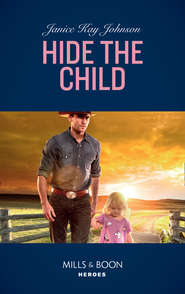По всем вопросам обращайтесь на: info@litportal.ru
(©) 2003-2024.
✖
All That Remains
Автор
Год написания книги
2019
Настройки чтения
Размер шрифта
Высота строк
Поля
She didn’t have a cell phone, not since James had convinced her that she didn’t need one. Even if she’d had one—who would she call?
Oh, Molly, please be home. Please be glad to see me.
Wren wished she’d met the man her best friend from college had married. Molly had wanted her to be the maid of honor, but James couldn’t get away that weekend and he’d hated the idea of her going without him….
Wren shuddered at the memory of how stupid she’d been.
She made herself think again about Molly’s husband. Samuel. If Molly loved him, he must be okay. He wouldn’t turn Wren away. She didn’t need that much from them. The house had extra bedrooms, Molly had said it did. If they could give her even a few weeks of respite, she’d figure something out.
She just didn’t know what that something would be.
A split-rail fence appeared to the right of the road then disappeared behind a burst of wind-driven rain that pummeled the car with new ferocity, making it sway.
Would she need gills to breathe outside? she wondered with momentary whimsy. The car had become her womb. She hoped the waters her baby swam in were warmer and more hospitable than the deluge out there.
The defroster struggled to keep the windshield clear. Suddenly she couldn’t quite make out the yellow line ahead. A flare of alarm triggered a stab of pain in her lower back, and Wren lifted her foot from the gas. While her brain grappled with the realization that she could see nothing but gray ahead—driving, swirling, misting—momentum carried the car forward.
The next second, it plowed into something. Wren was flung forward against the seat belt, then back. Even as she cried out, water rushed over the hood and windshield and she realized she hadn’t come to a complete stop. Oh, God. She must have plunged off the road into the river or a lake or pond. Absurdly, she slammed her foot down on the brake.
The car came to a stop. The wipers tried valiantly to clear the windshield. The engine was still running. Hand shaking, Wren tried to push open her door and couldn’t do more than open the smallest of cracks, through which water rushed. She wrenched the door shut again. Through her panic, she made herself think. Keep driving forward? Try to back up? Molly’s house was ahead, but…she knew there was bare road behind. Whimpering, more scared than she could ever remember being, she put the gear in Reverse.
The engine choked and died.
Frantically she shifted the car into Park and turned the key in the ignition, over and over, and began sobbing. The windows were electronic. How would she get out if she couldn’t roll them down?
The next second, the engine caught and, gasping with relief and fear, Wren hit the two buttons to roll down the front windows. They were almost all the way down when the engine died again.
This time, nothing she could do brought it to life again. Finally she gave up and sat gulping in air, trying to think. Cold rain was slanting in the open window and she was already soaked. If she could wade to the road, maybe somebody else would come along. Maybe even somebody who knew where Molly Hayes lived.
No, not Hayes. For a moment Wren couldn’t think. Roth something. Rothberg. No, that wasn’t right, the name was longer than that. Rothenberg. Or even… Rothenberger? She couldn’t remember.
“It doesn’t matter,” she said aloud. “It doesn’t matter. If I can find the nearest house, we’ll be all right. Anybody would take us in.”
She tried the door again, but she was pushing against water that wasn’t far below the window. Could it be shallower on the other side? Wren unfastened her seat belt, let the seat slide back and laboriously clambered over the console to the passenger seat. But when she tried to open that door, she had no more success.
Shaking from cold and fear, she realized that the interior would soon be underwater if she did manage to get either door ajar more than a crack. In fact, it was trickling in anyway. She looked down to see that her feet stood in several inches of water.
She had to get out the window. Surely—please, God—she could squeeze her pregnant belly through. Wren twisted first and pulled her small suitcase over the seat. She would take it and her purse, that only made sense.
Getting out a car window wasn’t as easy as it ought to be. She poked her upper body out, and saw that she’d be plunging into waist-deep water, at least. It was moving, swirling and parting around the car. The river, then, not a placid pond. She didn’t dare go headfirst.
Feetfirst. Pain squeezed her lower back and, gasping, she waited it out. She’d made it worse, climbing so awkwardly to this side of the car. But the spasm passed, and she maneuvered so she was very nearly on her hands and knees on the car seat, her cheek pressed to the steering wheel. She lifted one leg and stuck it out, twisting so that her hip and not her belly would take her weight on the frame once she got the other leg out, too.
She squirmed and pushed herself, grabbing at the emergency brake, the dashboard, the back of the seat. Anything she could use for leverage. She didn’t think she would have fit had she been facedown or faceup, but sideways her belly just barely cleared the window frame.
For an instant she hung partway, and then her lower body dropped and she gasped from the cold as she plunged into the water.
No, definitely not a pond—current pressed her against the door. Walking in this wouldn’t be easy, and she momentarily hesitated. Maybe she’d be safer if she stayed in the car. The rain would let up eventually, wouldn’t it? And the rental car was bright red. Someone would spot it.
But she was chilled to see that the water level was still rising, lapping now into the car. She heard herself breathing, huge gasps, and grabbed her suitcase and purse.
She started back the way she’d come, but immediately realized the water was becoming deeper. Had her car nearly made it through a flooded dip in the road? Struggling against the current, she turned. She was bumped hard against the fender, then the door, but as she forged ahead the water seemed to be not quite as deep.
She moved, crablike, to protect her belly in case the current carried a branch or something even more dangerous to batter her. Once she was nearly knocked off her feet. Somehow she saved herself. She heard a keening sound that she knew, in a distant part of her mind, was coming from her. She pushed on, trying to hold the suitcase above the water.
Miraculously, the surface was only hip-high now, then thigh-high. As relief began to trickle through her, she was slammed from behind hard enough to pitch her forward. The suitcase was snatched from her hands and gone, her lunge for it too late. Her purse…no, it was gone, too. She pushed herself up and kept going, so cold her teeth were chattering, and she was convulsively trembling. But the water came only to her knees, and then her ankles, and finally she was shocked to see a yellow stripe ahead. She was still on the road. She’d never left it.
She plodded ahead, following the yellow line. Nothing she did was conscious, not now. She was hiding deep inside, knowing only the cold and the intermittent pain in her back. She walked on and on, with no sense of time or distance.
The road curved, and there was a mailbox straight ahead. It was rusting, the post it sat atop beginning to rot at its base so that the whole thing tilted slightly. Still, it was a mailbox. And where mail was delivered, there must be a house.
The driveway could hardly be dignified by calling it that. It was a muddy track, streams running in the ruts. She slipped once, wrenching her ankle, but she was so cold the pain hardly registered. All she knew was that she had to keep moving. She didn’t dare stop.
No warm golden light appeared ahead. There was no welcome smell of wood smoke. But the shape of buildings appeared through the rain. One was a decrepit barn, the doors sagging half-open. The other was a house with a broad front porch. No lights, even though dusk had deepened the wet sky to charcoal.
She dragged herself up the steps. Windows were blank, dark. Wren knocked. Her hand was so numb she couldn’t feel the impact. She hammered harder, and harder, until she fell against the door and beat on it with both hands.
If she didn’t get inside, she’d freeze to death.
She tried the knob, which turned, but the door didn’t budge. A dead bolt above it was shiny, newer than the original hardware. Break a window, then. She looked around for something to use. An old Adirondack chair sat at one end of the porch. Its paint was peeling. She dragged it, bumpety bump, to the nearest window. Wren didn’t know how she’d find the strength, but she did. She picked it up and slammed it against the small-paned window. Glass shattered, and she lost her grip. The chair tumbled through the window. She paused for a second, waiting for lights to come on, a voice to call out in alarm, a home owner to appear wielding a shotgun. Nothing. At last, painfully, she climbed over the sill, stumbled over the chair, and fell to her hands and knees on the floor of some stranger’s house.
ALEC HARPER KNEW even as he tied the rope around his waist, climbed over the bridge railing and dove into the torrential Spesock River that rescue was coming too late for the driver and any passengers in the car that had plunged into the water. But he had to try.
Crap, the water was cold. He let the current carry him to the small white car, curling his body when he slammed against it. He grabbed for the door handle and held on. Passenger side. He fought his desperate need for air and strained to look inside. Oh, shit, shit. He could see a man, hair floating around his face. A deployed air bag hid the driver from Alec’s sight. The backseat, thank God, was empty.
Alec maneuvered his body over the hood of the car. His achingly cold fingers found purchase on the rim beneath the wiper blades. He was screaming inside for air, but he was almost there. The rope was pulled taut now, and, trusting the men who held the other end, he let go as he washed over the hood. There, in the driver’s-side window… A second man, his face blanched as well, stared with sightless eyes.
Alec yanked on the rope then kicked and fought for the surface. His fellow rescuers dragged him in. At the shouted questions, he shook his head even before hands pulled him onto the bridge, where he lay shaking.
Somebody wrapped him in a blanket. They were a disparate group—two men he didn’t know who he thought were National Guard and himself, a police homicide detective. They held some discussion and decided they had to bring the bodies up.
It turned out to be grueling. They took turns going down and hammering on the window with a tire wrench until they succeeded in shattering it and could unbuckle the bodies, one at a time, and drag them out.
In the complete exhaustion afterward, Alec wondered how long the two had been dead. He and the others could have been rescuing someone still living. He thought of the stranded motorists he’d earlier plucked from the roofs of their cars, each and every one of them sure they could drive through the river their street had become. Stupid, yes, but who had anticipated the speed with which the floodwaters had risen?
These two, he thought, as he helped heave the two drowning victims into the back of an army vehicle, wouldn’t be the last he’d see.
The Spesock River flooded regularly, but not like this. There had been talk about the hundred-year flood levels, although no one really took it seriously. It was hard to in this era of weather as entertainment and forecasts that seemed more hyperbole than fact. But these past weeks of endless, drenching rains had saturated the ground. Flash floods came along every few years in Arkansas, but this time the water kept rising. There was nowhere for it to go. It swallowed houses and roads and farms. When Alec had last stopped briefly at the emergency operations center—set up at the redbrick Mountfort City Hall—he’d heard that nearly one quarter of the county was submerged. He could believe it. He’d spent almost thirty-six hours in a borrowed aluminum fishing boat, and it was hard not to pause and stare in disbelief at the dark, swirling waters turning a once familiar landscape into something his eyes didn’t want to believe.
He waved goodbye to his helpers and returned to his boat. The aging Mercury outboard motor started with a cough and burst of oily smoke, but it obliged when he swung it in an arc that would lead him to Saddler’s Mill. He was so damn cold he had to return to one of the emergency shelters and find dry clothes before he could do any more.
This one had been set up in a high-school gymnasium. Donated cots and bedrolls were packed closely together. After changing clothes, Alec stopped to talk to several people he knew.
Jim Hunt and his wife had celebrated their sixtieth wedding anniversary last year. Alec knew, because his mother had written him about it. Now they were in the shelter, and the couple of suitcases tucked beneath the pair of cots were all they’d been able to salvage. Not much from a lifetime.
“I suppose the whole sheriff’s department is out there,” Mr. Hunt commented.
A nod was enough answer. Alec doubted a single sheriff’s deputy or detective had stayed home, not when the people they were hired to protect were in danger. Earlier, he’d seen a lieutenant, red-eyed with fatigue, delivering a woman and child to a shelter.











